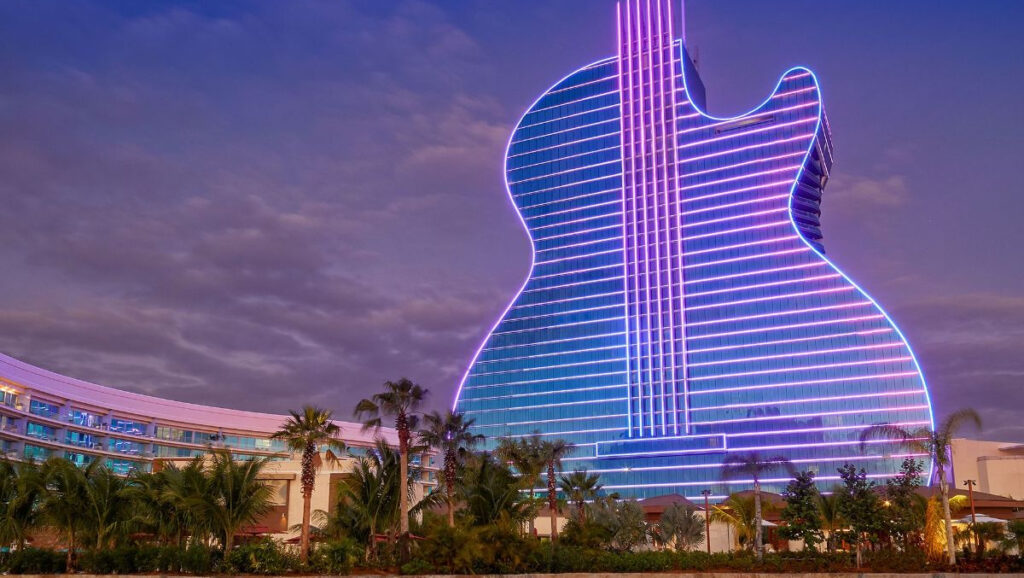
The United States Supreme Court decided not to hear a case that would upset the Seminole Tribe’s monopoly on sports betting in Florida, effectively granting the tribe the sole right to accept sports wagers in the state for the foreseeable future.
Industry experts claim the tribe is now set to earn billions in the coming years, through gambling revenue.
The Seminole Tribe is one of two active Native American groups in Florida and the only tribe in the state with a Class III gaming compact, which gives authority to offer casino gaming, sports betting and other games of chance on its territory.
The Seminole Tribe negotiated itself into the compact as the exclusive sports-betting provider in the state.
“That is somewhat not out of place,” Mike Andrews, head of McGuireWoods Consulting a Native American policy group, told ESPN. “A lot of tribes have negotiated exclusivity agreements so they can limit competition from outside folks.
“The bigger issue is allowing bets to be placed outside of what is referred to as Indian land – the reservation.”
The compact, which was renegotiated with Governor Ron DeSantis in 2021 and will run through July 2051, states that online sports betting can be made in Florida as long as those wagers are placed through servers on land considered Seminole Tribe reservation.
Legal Battle and Supreme Court Decision
Miami-based casino operators West Flagler Associates had brought suit against the Seminole Tribe, and DeSantis, arguing that the exclusivity agreement gave the Seminoles too much of an advantage. After a Washington, D.C. circuit court initially sided with West Flagler, the tribe appealed and won, leading to the Supreme Court standoff.
“The Seminole Tribe of Florida applauds today’s decision by the U.S. Supreme Court to decline consideration of the case involving the tribe’s gaming compact with the State of Florida,” said Seminole spokesperson Gary Bitner in a statement. “It means members of the Seminole Tribe, and all Floridians, can count on a bright future made possible by the compact.”
Hard Rock Casino, and its app Hard Rock Bet, stands as the lone legal online sports-betting platform in the state, since its servers are on tribal land – at the Hollywood-based Seminole Hard Rock Hotel and Casino.
But even though Hard Rock Bet got a head start on the competition in the Sunshine State, the tribe can partner with other online sports betting platforms and take at least a 60 percent commission on bets placed in Florida.
That rate, along with the standard tax rate of 10-15 percent taken by states that offer online sports betting, seems likely to scare off national online sportsbooks like DraftKings and FanDuel. This is despite the robust Florida population of 23 million plus – that does not include seasonal residents who migrate from the north each winter – and ample tourists who flock south throughout the year.
Native American Gaming Rights
Native American compacts with states were established during the Indian Gaming Regulatory Act of 1988, which established the federal government as the overseer of tribal lands.
The Supreme Court’s decision not to hear the case sets a precedent that could have a profound impact on the future of sports betting in the U.S. – especially in the Midwest and West where Native American tribes control more land.
One specific state that could find itself in a similar situation is California, the most populous state in the U.S. National betting outlets like DraftKings and FanDuel battled the 100-plus active tribes over two propositions on the ballot in 2022, Props 26 and 27, and neither was passed after the tribes spent hundreds of millions of dollars on an aggressive anti-Prop 27 campaign – which would have legalized online sports betting not through native lands.
The Florida decision will undoubtedly send gambling operations to the table to negotiate fair deals for both tribes and the sportsbooks, especially with the potential for a huge payout in California.
“At the end of the day, if wagering is going to be done legally in California, it is going to be done with and through the 100-plus tribes there,” FanDuel CEO Amy Howe said while participating in the New Frontier of Sports Wagering panel at the Indian Gaming Tradeshow and Convention in Anaheim.
“The tribes have done a phenomenal job of stewarding the Class III gaming licenses. It is critical for us to do this together and not against one another.”
